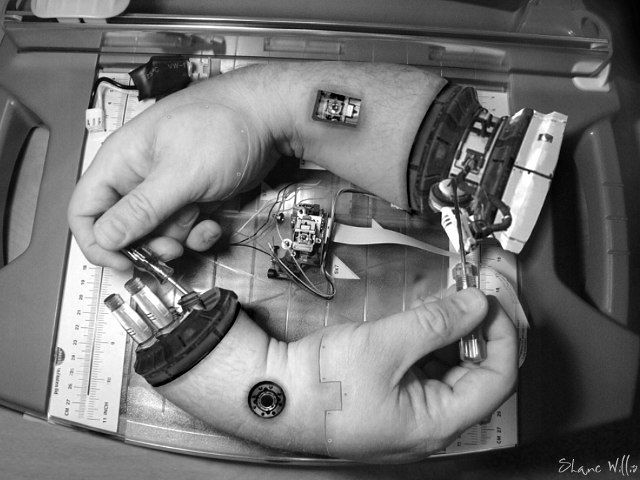Los días 21 y 22 de febrero está teniendo lugar la III edición de Comunica2.0 y voy a presentar un trabajo en el que se analizo cómo se pueden identificar grupos dentro de una red de acuerdo a su opinión, cuando éstas son positivas o negativas. La propuesta es aplicar procesos de consenso pero con la particularidad de que la red es una rd con signo, es decir, los pesos entre dos nodos están comprendidos entre -1 y 1.
[EUMAS10] J-MADeM v1.0: A full-fledge AgentSpeak(L) multimodal social decision library in Jason
Trying to produce social intelligent agents that shows an acceptable behaviour in social envinronments. Applied to BDI agents and using an auction model as decision/making mechanism. It seems interesting for us, as the last step for reaching a concrete agreement after an agreement space has been created using a consensus network. And it is implemented over Jason, so we can integrate it in Mgx agents.
The API seems to extend a Jason agent with predicates that can be introducced in the rules. So if we get a network of jason-mgx agents, we can program agents with decision making procedires that maximizes the benefit of a concrete water rights distribution among participants.
An interesting work that can be useful for us. I’ll read the paper later
[CostAT] Trust as a Unifying Basis for Social Computing
by Munindar Signh
Trust underlies all interactions among autonomous parties over many social relationships: casual, familiar, communal, organizational, practical…. But trust it use to be a internal characteristics and it can not be extrapolated outside a single application.
A social applications specifies and configure (i) roles,, (Ii) social interactions and (iii) additional constraints. And the elements we have available to model these systems (architecture) are components, connectors, constraints (over both of them) and patterns (that generalize its behavior). In the case of a social systems, they are
components >> individuals
connector >> social relationships
constraint >> reciprocal (ej Facebook)
patterns >> ….
The claim of this presentations is that trust is what flues in the relationships and it is how individuals and social relationships can be characterized. The sample> an agent (Toto) that acts as a middleware and can provide with trust the interactions among real people in different applications. That is, a layer which can be used in social apps (for instance) to measure the confidence on other users (humans) interactions (NOTE. a very close concept to the trust bundle proposed in AT)

